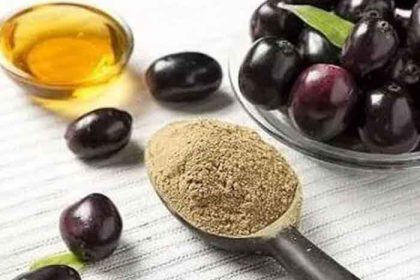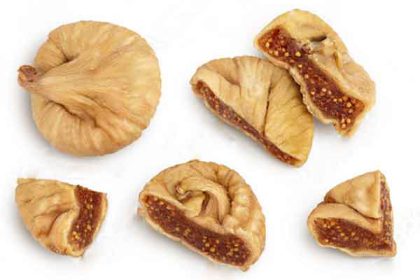Cherry benefits for skin and female and blood and males
Cherry benefits

Cherry benefits for skin and female and blood and males on Nichooli site. We hope this article will be of interest to you.
cherries, both sweet and tart varieties, offer numerous health benefits. They are rich in antioxidants, have anti-inflammatory properties, promote heart health, aid in sleep, support exercise recovery, benefit brain health, assist in diabetes management, help with weight management, and contribute to digestive health and skin health. Cherries are a nutritious and delicious addition to a balanced diet, providing various health advantages. However, it’s important to consume them in moderation and be mindful of potential side effects, such as allergies or interactions with certain medications.
Cherry benefits
Cherries, both sweet and tart, offer a range of health benefits due to their rich nutrient content and bioactive components. Here are some of the key benefits:
Rich in Antioxidants: Cherries are packed with antioxidants like anthocyanins and quercetin, which help in fighting oxidative stress and may reduce the risk of chronic diseases.
Anti-Inflammatory Properties: The compounds in cherries have anti-inflammatory effects, which can be beneficial in reducing pain and inflammation associated with conditions like arthritis.
Heart Health: Consuming cherries is linked to improved heart health. They can help in reducing blood pressure and cholesterol levels, which are key risk factors for heart disease.
Sleep Aid: Cherries, especially tart cherries, are a natural source of melatonin, a hormone that regulates sleep cycles. Consuming cherry juice has been found to improve sleep quality and duration.
Exercise Recovery: The anti-inflammatory and antioxidant properties of cherries can aid in muscle recovery post-exercise. Cherry juice is popular among athletes for reducing muscle soreness and improving recovery time.
Supports Brain Health: The antioxidants in cherries may also support brain health and prevent cognitive decline. They can protect against oxidative stress, which is linked to mental decline and neurodegenerative diseases.
Diabetes Management: Cherries have a lower glycemic index than many fruits, which means they cause a slower, more controlled rise in blood sugar levels, making them a better choice for people with diabetes.
Weight Management: Being low in calories and high in fiber, cherries can be a good addition to a weight management diet. They can provide satiety and reduce overall calorie intake.
Digestive Health: The fiber in cherries aids in digestion and helps maintain regular bowel movements, promoting overall gut health.
Skin Health: The high vitamin C content in cherries is essential for collagen production, which is important for skin health. The antioxidants also protect the skin from damage from free radicals and aging.
Charry side effects
While cherries are generally healthy and beneficial, there are a few potential side effects to be aware of, especially when consumed in large quantities:
Gastrointestinal Issues: Due to their high fiber content, eating too many cherries can lead to digestive problems like bloating, gas, and diarrhea, particularly in individuals not used to consuming high amounts of fiber.
Calorie Intake: While cherries are not overly high in calories, eating them in large quantities can contribute to increased calorie intake, which may impact weight management efforts.
Sugar Content: Cherries contain natural sugars, and consuming them in excess can lead to an increase in blood sugar levels, which is a concern for individuals with diabetes or those trying to manage their sugar intake.
Allergic Reactions: Though rare, some people may be allergic to cherries. Symptoms of a cherry allergy can include itching, swelling, and respiratory problems.
Pesticide Residue: Cherries are often treated with pesticides, and consuming non-organic varieties could expose you to these residues. Washing them thoroughly or opting for organic cherries can help reduce this risk.
Tooth Enamel Damage: The acids in cherries can affect tooth enamel over time. It’s advisable to rinse your mouth with water after consuming acidic foods like cherries to protect your teeth.
Cherry Pit Hazards: Cherry pits are a choking hazard and should not be consumed. They also contain amygdalin, which can release cyanide in the body when digested. However, accidental ingestion of a single pit is unlikely to cause harm due to the small amount of amygdalin it contains.
Drug Interactions: Cherries contain compounds that may interact with certain medications. For example, cherry juice is rich in vitamin K, which can interfere with blood thinners like warfarin.
Vitamins and mineral of cherry per 100g
Cherries, both sweet and tart varieties, are a nutritious fruit with a good profile of vitamins and minerals. Here’s a breakdown of the vitamins and minerals typically found in 100 grams of cherries:
Vitamins:
Vitamin C: Around 7-10 mg. Vitamin C is important for skin health, immune function, and overall antioxidant protection.
Vitamin A: Approximately 64 IU. Essential for good vision, skin health, and immune function.
Vitamin K: About 2-3 mcg. Important for blood clotting and bone health.
Vitamin B6 (Pyridoxine): Small amounts (around 0.049 mg). B6 is vital for brain health and metabolism.
Folate (Vitamin B9): Around 4 mcg. Essential for DNA synthesis and repair, and important during pregnancy.
Vitamin E: Minimal amounts. Vitamin E is an antioxidant that helps protect cells from damage.
Minerals:
Potassium: Around 222 mg. Potassium is crucial for heart health, muscle function, and maintaining fluid balance.
Calcium: About 13 mg. Needed for bone health and various cellular functions.
Magnesium: Approximately 11 mg. Important for muscle and nerve function, and many biochemical reactions in the body.
Phosphorus: Around 21 mg. Essential for healthy bones and teeth, and plays a role in how the body uses carbohydrates and fats.
Iron: About 0.36 mg. Needed for the formation of red blood cells and transporting oxygen throughout the body.
Other Compounds:
Cherries are also a source of dietary fiber, with about 2.1 grams per 100 grams.
They contain bioactive compounds like anthocyanins and quercetin, which have antioxidant and anti-inflammatory properties.
The nutritional content can vary slightly between different varieties of cherries and depending on their ripeness and growing conditions. Nonetheless, cherries are a healthy addition to the diet, offering a range of essential nutrients.
Cherry benefits for skin
Cherries offer several benefits for skin health, primarily due to their rich content of antioxidants, vitamins, and other beneficial nutrients. Here are some of the key ways cherries can benefit the skin:
Antioxidant Protection: Cherries are high in antioxidants like vitamin C and flavonoids, which help protect the skin from oxidative stress caused by free radicals. This can prevent premature aging, reduce wrinkles, and maintain a youthful appearance.
Boosts Collagen Production: Vitamin C in cherries is crucial for collagen synthesis, a protein vital for skin elasticity and firmness. Regular consumption of cherries can help in keeping the skin firm and plump.
Anti-Inflammatory Properties: The anti-inflammatory effects of cherries can be beneficial for conditions like acne, rosacea, and eczema. They can help reduce redness and swelling associated with these skin conditions.
Improves Skin Tone: The natural compounds in cherries can help in brightening the complexion and improving overall skin tone. They can also reduce dark spots and pigmentation over time.
Hydration: Cherries have a high water content, which can help in keeping the skin hydrated and moisturized.
Sun Damage Repair: The antioxidants in cherries, particularly vitamin C and beta-carotene, can help in repairing the damage caused by UV rays, reducing the impact of sunburn and preventing long-term sun damage.
Detoxifies Skin: The fiber and nutrients in cherries help in detoxifying the body, including the skin. This can lead to a clearer and healthier complexion.
Promotes Healthy Hair and Nails: The vitamins and minerals in cherries not only benefit the skin but also contribute to the health of hair and nails, enhancing overall appearance.
Cherries before bed
Eating cherries before bed can be beneficial for your sleep due to their natural content of melatonin, a hormone that regulates the sleep-wake cycle. Here’s how cherries can potentially aid in better sleep:
Melatonin Content: Cherries, especially tart cherries, are one of the few natural food sources of melatonin. Consuming them before bed can increase melatonin levels in the body, potentially improving sleep quality and duration.
Regulates Sleep-Wake Cycle: Melatonin helps regulate the circadian rhythm (your body’s internal clock), which can assist in managing sleep disorders or irregular sleep patterns.
Antioxidant Properties: The antioxidants in cherries, including vitamin C and E, as well as flavonoids, can reduce inflammation and oxidative stress, which might otherwise interfere with healthy sleep.
Natural and Gentle: Unlike sleep medications, cherries offer a natural and gentler alternative for improving sleep without the risk of dependency or side effects associated with some sleep aids.
Helps with Relaxation: The nutrients in cherries, such as magnesium and potassium, are known for their muscle-relaxing properties and can contribute to a feeling of relaxation before bedtime.
Cherry benefits for females
Cherries offer numerous health benefits that can be particularly advantageous for women due to their unique nutritional profile. Here are some key benefits:
Bone Health: Cherries are a good source of boron, which, along with their Vitamin K and magnesium content, contributes to bone health. This is particularly beneficial for women who are at a higher risk of osteoporosis.
Rich in Antioxidants: The high antioxidant content, including vitamins C and E, helps combat oxidative stress and inflammation, which is beneficial for overall health and may also aid in reducing the signs of aging.
Heart Health: The heart-healthy properties of cherries, such as their ability to help lower blood pressure and cholesterol levels, are important for women who are more susceptible to heart disease, especially post-menopause.
Weight Management: Being low in calories and high in fiber, cherries can be a great addition to a diet aimed at weight management, an issue that many women deal with.
Mood Regulation: The nutrients in cherries, including vitamin B6, can help in mood regulation. This can be particularly beneficial in managing symptoms related to PMS and hormonal fluctuations.
Reduced Arthritis and Gout Risk: The anti-inflammatory effects of cherries can help in reducing pain and inflammation associated with arthritis and gout, conditions that commonly affect women.
Improved Sleep Quality: Cherries are a natural source of melatonin, which can help regulate sleep cycles. Better sleep is crucial for overall health and can aid in stress reduction and hormonal balance.
Skin Health: The vitamins and antioxidants in cherries can also contribute to healthy skin, protecting against UV damage and aiding in skin repair and maintenance.
Supports Pregnancy Health: While cherries should be consumed in moderation during pregnancy, their folate content is beneficial for fetal development and can help prevent birth defects.
Breast Cancer Prevention: Some studies suggest that the compounds in cherries might have a protective effect against certain types of cancer, including breast cancer, though more research is needed in this area.
Cherry benefits for males
Cherries offer several health benefits that can be particularly advantageous for men, thanks to their rich nutritional profile and bioactive compounds. Here are some of the key benefits for men:
Heart Health: Cherries are beneficial for cardiovascular health due to their high content of antioxidants and anti-inflammatory compounds. They can help lower blood pressure and bad cholesterol levels, reducing the risk of heart diseases, which are a major health concern for men.
Muscle Recovery and Strength: The anti-inflammatory properties of cherries can aid in faster muscle recovery post-exercise. This is particularly beneficial for men who engage in regular physical activity or strength training.
Joint Health and Reduced Inflammation: Cherries, especially tart cherries, have been shown to reduce inflammation and symptoms of arthritis and gout, conditions that often affect men as they age.
Weight Management: Being low in calories and high in fiber, cherries can be a good addition to a weight management diet. They provide satiety, which can help in controlling appetite and reducing overall calorie intake.
Improved Sleep: The natural melatonin content in cherries can help regulate sleep patterns. Good sleep is crucial for overall health, including hormone regulation and cognitive function.
Reduced Risk of Chronic Diseases: The antioxidants in cherries, such as anthocyanins and quercetin, may help reduce the risk of certain chronic diseases, including certain types of cancer that are more prevalent in men.
Mental Health Benefits: The nutrients in cherries can have a positive impact on mental health. They can help reduce stress and anxiety levels, which is important for men’s mental well-being.
Enhanced Athletic Performance: Some studies suggest that cherry juice can enhance athletic performance, increase endurance, and reduce exercise-induced muscle soreness, which is beneficial for active men.
Prostate Health: Although direct evidence is limited, the overall anti-inflammatory and antioxidant properties of cherries may contribute to prostate health.
Skin Health: The vitamins and antioxidants in cherries can contribute to healthier skin, protecting against UV damage and aiding in skin repair, which is beneficial for men who are exposed to outdoor environments.
Cherry benefits for hair
Cherries offer several benefits for hair health, largely due to their rich nutritional content. Here are some of the key ways in which cherries can be beneficial for your hair:
Promotes Hair Growth: Cherries are rich in bioactive compounds like antioxidants and vitamins, particularly vitamin C, which plays a crucial role in promoting hair strength and growth. Vitamin C aids in the production of collagen, a protein that strengthens hair and prevents it from breaking and splitting.
Scalp Health: The anti-inflammatory properties of cherries can be beneficial for the scalp, helping to reduce issues like dandruff and scalp irritation. A healthy scalp is essential for healthy hair growth.
Prevents Hair Loss: The antioxidants in cherries, such as vitamin C and flavonoids, help combat free radicals. Free radicals can damage hair follicles and contribute to hair loss, so antioxidants are vital for maintaining healthy hair.
Enhances Hair Color: The vitamins and minerals in cherries can enhance the natural color and shine of your hair. For those with dark hair, cherries can add a subtle richness and vibrancy.
Moisturizes Hair: Cherries contain vitamins A and E, which help lock in moisture, keeping hair hydrated and preventing dry, brittle strands.
Maintains pH Balance: The natural acids in cherries can help maintain the pH balance of the scalp, which is important for keeping the hair and scalp healthy and free from infection.
Improves Blood Circulation: Regular consumption of cherries can improve blood circulation, including to the scalp. Good blood circulation is important for healthy hair growth and scalp health.
Cherry benefits for blood
Cherries, particularly tart cherries, offer several benefits for blood health due to their rich composition of nutrients and bioactive compounds. Here are some of the key benefits:
Rich in Antioxidants: Cherries are packed with antioxidants like anthocyanins and vitamin C, which can help protect blood vessels from oxidative damage. This is important for maintaining the integrity and health of the circulatory system.
Anti-Inflammatory Properties: The anti-inflammatory effects of cherries can be beneficial for reducing inflammation in the body, including in the blood vessels, which is beneficial for cardiovascular health.
Improves Cholesterol Levels: Some studies have shown that cherries can help reduce levels of bad LDL cholesterol and triglycerides, which are key risk factors for heart disease.
Lowers Blood Pressure: The potassium content in cherries can help in regulating blood pressure. Potassium counteracts the effects of sodium in the body, which is important for keeping blood pressure in a healthy range.
Blood Sugar Regulation: Cherries have a relatively low glycemic index, meaning they cause a slower, more controlled rise in blood sugar levels. This makes them a good fruit choice for people with diabetes or those trying to manage their blood sugar levels.
Reduces Gout Attacks: For individuals suffering from gout, a type of arthritis caused by too much uric acid in the blood, cherries can be beneficial. They have been shown to reduce uric acid levels and the frequency of gout attacks.
Improves Circulation: The compounds in cherries can help improve circulation and blood flow, which is important for overall cardiovascular health and can enhance physical performance and recovery.
Stroke Prevention: The combination of anti-inflammatory and antioxidant properties, along with cholesterol and blood pressure management, contributes to stroke prevention by maintaining healthy blood vessels and preventing blockages.
Cherry benefits for pregnancy
Cherries can offer various benefits during pregnancy, thanks to their rich nutritional profile. However, it’s always essential for pregnant women to consult with their healthcare provider before making significant dietary changes. Here are some potential benefits of cherries during pregnancy:
Rich in Vitamins and Minerals: Cherries are a good source of essential nutrients like vitamin C, vitamin A, potassium, and iron, which are important for both maternal health and fetal development.
Antioxidants: The high antioxidant content, particularly vitamin C and flavonoids, can help protect both the mother and the fetus from oxidative stress. Antioxidants are also important for strengthening the immune system.
Hydration: Cherries have a high water content, which can help in maintaining hydration, a crucial aspect during pregnancy.
Fiber Content: The dietary fiber in cherries can aid in digestion and help prevent common pregnancy-related issues like constipation and hemorrhoids.
Natural Sweetness with Low Glycemic Index: For pregnant women managing blood sugar levels or gestational diabetes, cherries can be a better option than high-glycemic-index fruits because they have a lower impact on blood sugar.
Anti-Inflammatory Properties: The anti-inflammatory effects of cherries can be beneficial in reducing swelling and inflammation, which are common during pregnancy.
Sleep Aid: Cherries, especially tart cherries, contain melatonin, which may help improve sleep quality. Good sleep is essential during pregnancy for both the mother’s and the baby’s health.
Mood Booster: The nutrients in cherries can contribute to mood regulation, which might be beneficial given the hormonal changes and mood swings often experienced during pregnancy.
Bone Health: The vitamin K and calcium present in cherries are important for maintaining bone health, which is crucial during pregnancy as the mother’s body supports the growing baby.
Folate Content: While cherries are not a primary source of folate, they do contribute to the overall intake. Folate is essential during pregnancy for preventing neural tube defects in the developing fetus.
Cherry benefits for weight loss
Cherries can be a beneficial addition to a weight loss diet for several reasons, thanks to their nutritional profile and health properties:
Low in Calories: Cherries are relatively low in calories, making them a good snack option for weight management. They can satisfy sweet cravings without adding a significant calorie load.
High in Fiber: They are a good source of dietary fiber, which is important for weight loss. Fiber helps in promoting satiety, reducing overall appetite and preventing overeating.
Natural Sweetness: The natural sweetness of cherries can help satisfy sugar cravings without the need for added sugars or high-calorie desserts.
Rich in Nutrients: Despite being low in calories, cherries are rich in essential nutrients, including vitamins and minerals, which are important for maintaining overall health during weight loss.
Water Content: Cherries have a high water content, which helps in hydration. Proper hydration is important for metabolism and can aid in weight loss.
Antioxidant Properties: The antioxidants in cherries, such as anthocyanins and vitamin C, can help combat oxidative stress and inflammation, which have been linked to obesity and weight gain.
May Aid in Reducing Belly Fat: Some studies suggest that the anti-inflammatory and cholesterol-lowering properties of cherries might help in reducing visceral fat, a harmful type of fat stored around the abdominal organs.
Low Glycemic Index: Cherries have a lower glycemic index compared to other fruits, which means they have a less significant impact on blood sugar levels, making them suitable for a weight loss diet.
Can Improve Sleep: The natural melatonin in cherries can improve sleep quality. Better sleep is associated with a healthier weight, as poor sleep can disrupt hunger hormones and lead to weight gain.
Exercise Recovery: For those who include exercise as part of their weight loss plan, cherries can aid in recovery, reduce muscle soreness, and enhance exercise performance, which can encourage more consistent physical activity.
Cherry benefits for stomach
Cherries offer several benefits for stomach health and digestion due to their nutritional content and natural compounds. Here are some of the key benefits:
Rich in Fiber: Cherries contain dietary fiber, which is essential for digestive health. Fiber helps in regular bowel movements, preventing constipation and maintaining a healthy digestive tract.
Aids in Digestion: The fiber in cherries can also aid in the digestion process by helping to regulate bowel movements and support a healthy gut microbiome.
Anti-Inflammatory Properties: Cherries have natural anti-inflammatory effects, which can be beneficial for reducing inflammation in the gastrointestinal tract. This can be helpful for conditions like gastritis or mild forms of irritable bowel syndrome (IBS).
Alleviates Bloating and Gas: Due to their fiber content and natural compounds, cherries can help reduce bloating and gas, common symptoms of indigestion.
May Help in Acid Reflux: While individual responses can vary, the alkaline nature of cherries might help balance stomach acid, potentially providing relief for those with mild acid reflux. However, this can depend on the individual’s specific dietary triggers.
Rich in Antioxidants: The antioxidants in cherries, such as vitamin C and anthocyanins, can help protect the stomach lining from oxidative stress and damage.
Hydration: Cherries have a high water content, which is important for digestion and overall gut health.
Gentle on the Stomach: Generally, cherries are gentle on the stomach and can be a good fruit choice for those who are prone to stomach upset or those who need a mild, easy-to-digest food.
Potential Prebiotic Effects: While research is emerging, the compounds in cherries might have prebiotic-like effects, feeding the good bacteria in the gut and promoting gut health.
Cherry benefits for diabetes
Cherries can be a beneficial addition to the diet of individuals with diabetes, thanks to their nutritional profile and low glycemic impact. Here are some of the key benefits:
Low Glycemic Index: Cherries have a relatively low glycemic index (GI), which means they cause a slower and lower rise in blood sugar levels compared to high-GI foods. This is particularly important for people with diabetes in managing their blood glucose levels.
Rich in Antioxidants: Cherries are high in antioxidants like anthocyanins and vitamin C, which help reduce oxidative stress and inflammation. Chronic inflammation and oxidative stress are associated with the development of type 2 diabetes and its complications.
Fiber Content: The dietary fiber in cherries aids in blood sugar regulation by slowing down the absorption of sugar into the bloodstream. This can help in preventing rapid spikes in blood glucose levels following meals.
Heart Health: Diabetes increases the risk of heart diseases. The heart-healthy properties of cherries, such as their ability to help lower blood pressure and cholesterol levels, are beneficial for individuals with diabetes who are at an increased risk for cardiovascular issues.
Weight Management: Managing weight is often a key part of diabetes management. Cherries are low in calories and high in fiber, making them a satisfying snack that can help in weight control.
Reduces Inflammation: The anti-inflammatory effects of cherries can be beneficial in reducing systemic inflammation, which is often elevated in individuals with diabetes.
Improves Insulin Sensitivity: Some studies suggest that the bioactive compounds in cherries may improve insulin sensitivity, which is crucial for effective blood sugar management in diabetes.
Potassium Content: Cherries are a good source of potassium, a mineral important for maintaining electrolyte balance and normal heart function, which can be beneficial as diabetes can affect heart health.
Sweet cherries inflammation
Sweet cherries can also contribute to reducing inflammation, thanks to their nutritional composition and bioactive compounds. Here’s how they can be beneficial:
Antioxidants: Sweet cherries are rich in antioxidants like anthocyanins, quercetin, and vitamin C. These compounds can help neutralize free radicals in the body, reducing oxidative stress and inflammation, which are linked to various chronic diseases.
Anti-Inflammatory Compounds: The bioactive compounds in sweet cherries have been shown to have anti-inflammatory effects. These can help in reducing inflammation in the body, which is beneficial not only for joint and muscle pain but also for conditions like arthritis and cardiovascular diseases.
Polyphenols: Sweet cherries contain polyphenols, which have been studied for their anti-inflammatory properties. These compounds can help modulate the body’s inflammatory response.
Reduces C-Reactive Protein (CRP): Some studies have shown that the consumption of cherries can lead to a reduction in C-reactive protein (CRP), an indicator of inflammation in the body.
Gout and Arthritis: The compounds in sweet cherries have been associated with reducing the symptoms of gout and arthritis, which are inflammatory conditions. This is partly due to their ability to reduce uric acid levels in the body.
Improves Sleep: Sweet cherries, like tart cherries, contain melatonin, which can improve sleep quality. Good sleep is essential for regulating the body’s inflammatory responses and overall health.
How many cherries to eat for inflammation?
The exact number of cherries to consume for reducing inflammation isn’t set in stone, as it can vary based on individual health factors, the type of cherries, and overall dietary patterns. However, some research provides guidance:
Tart Cherry Juice: Studies often use tart cherry juice to assess the anti-inflammatory effects. For instance, drinking about 240-300 ml (about 8-10 ounces) of tart cherry juice daily has been shown to reduce markers of inflammation. This is roughly equivalent to consuming about 45-60 tart cherries.
Fresh or Dried Cherries: While there’s less specific research on the number of fresh cherries, a general guideline considering the nutritional equivalency suggests that eating around 1-2 cups of fresh cherries per day could provide similar benefits.
It’s important to note that:
Moderation is Key: Even though cherries are healthy, they contain natural sugars and calories, so it’s crucial to consume them in moderation as part of a balanced diet.
Consistency: Regular consumption is likely more effective than sporadic intake for experiencing anti-inflammatory benefits.
Individual Differences: The optimal amount can vary based on individual health conditions, dietary needs, and how one’s body responds to cherries.
Type of Cherries: Tart cherries (like Montmorency cherries) are typically higher in certain anti-inflammatory compounds compared to sweet cherries, but both types offer health benefits.
If you’re considering cherries as a dietary approach to manage inflammation, especially for medical purposes, it’s advisable to consult with a healthcare professional or a dietitian. They can provide personalized advice that takes into account your overall health and nutritional needs.
Does sweet cherry have melatonin?
Yes, sweet cherries do contain melatonin, a hormone that regulates the sleep-wake cycle. Melatonin is naturally produced by the body, but certain foods like cherries also contain it, which can contribute to improved sleep quality. Tart cherries, particularly the Montmorency variety, are more commonly noted for their high melatonin content and are often the focus of studies regarding sleep improvement. However, sweet cherries also contain melatonin, albeit usually in lower amounts compared to tart cherries. Consuming sweet cherries or their juice, especially in the evening, may help increase melatonin levels in the body, potentially improving sleep duration and quality. This makes cherries a natural and healthy option for those looking to enhance their sleep patterns. It’s important to note that while cherries contain melatonin, the amount can vary based on the type of cherry, the growing conditions, and how they are processed. For those interested in using food sources to naturally increase melatonin intake for better sleep, incorporating cherries into the diet can be a delicious and healthful strategy.
Are cherries good for your kidneys?
Cherries, particularly tart cherries, have been studied for their potential benefits on kidney health. While more research is needed, there are some indications that cherries may have positive effects on kidney function. Here are a few potential benefits:
Reducing Inflammation: Cherries, especially tart cherries, are known for their anti-inflammatory properties. Chronic kidney disease often involves inflammation, and consuming anti-inflammatory foods like cherries may help reduce this inflammation.
Blood Pressure Regulation: High blood pressure is a common risk factor for kidney disease. Some studies suggest that compounds in cherries may help lower blood pressure, which could benefit kidney health.
Antioxidant Protection: Cherries are rich in antioxidants, including anthocyanins. These antioxidants help protect cells from oxidative stress, which is involved in kidney damage.
Phytonutrients: Cherries contain various phytonutrients that may have protective effects on the kidneys. These include quercetin and chlorogenic acid.
Reducing Uric Acid Levels: High uric acid levels can contribute to kidney stones and kidney damage. Cherries, particularly tart cherries, may help reduce uric acid levels in the body.
10 Health benefits of cherries
Cherries, both sweet and tart, offer a range of health benefits. Here are 10 notable health benefits of cherries:
Rich in Antioxidants: Cherries are packed with antioxidants like anthocyanins and quercetin, which help protect cells from oxidative damage caused by free radicals.
Anti-Inflammatory Properties: Cherries contain compounds that can reduce inflammation, potentially easing symptoms of conditions like arthritis and gout.
Heart Health: The potassium and fiber in cherries contribute to heart health by helping to lower blood pressure and reduce cholesterol levels.
Better Sleep: Cherries are a natural source of melatonin, a hormone that regulates sleep patterns. Consuming cherries may improve sleep quality and duration.
Exercise Recovery: The anti-inflammatory properties of cherries can aid in post-exercise muscle recovery, reducing muscle soreness and inflammation.
Brain Health: The antioxidants in cherries may protect brain cells from oxidative stress, potentially reducing the risk of age-related cognitive decline.
Diabetes Management: Cherries have a low glycemic index and can help regulate blood sugar levels, making them a good choice for individuals with diabetes.
Weight Management: Cherries are relatively low in calories and high in fiber, promoting a feeling of fullness and aiding in weight management.
Digestive Health: The fiber in cherries can support digestive health by preventing constipation and promoting regular bowel movements.
Skin Health: Antioxidants in cherries may help maintain skin health by reducing the signs of aging and protecting against UV damage.


















